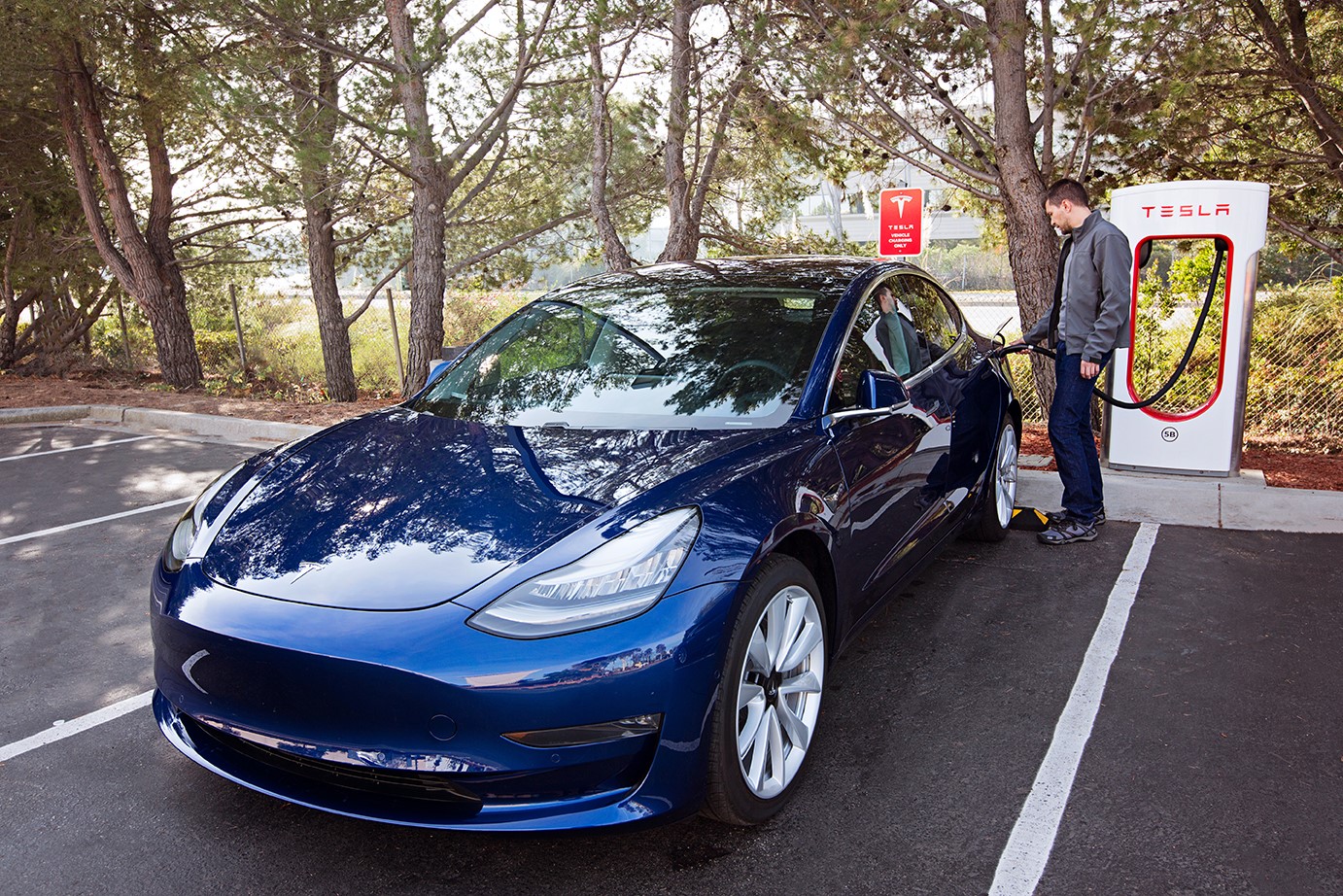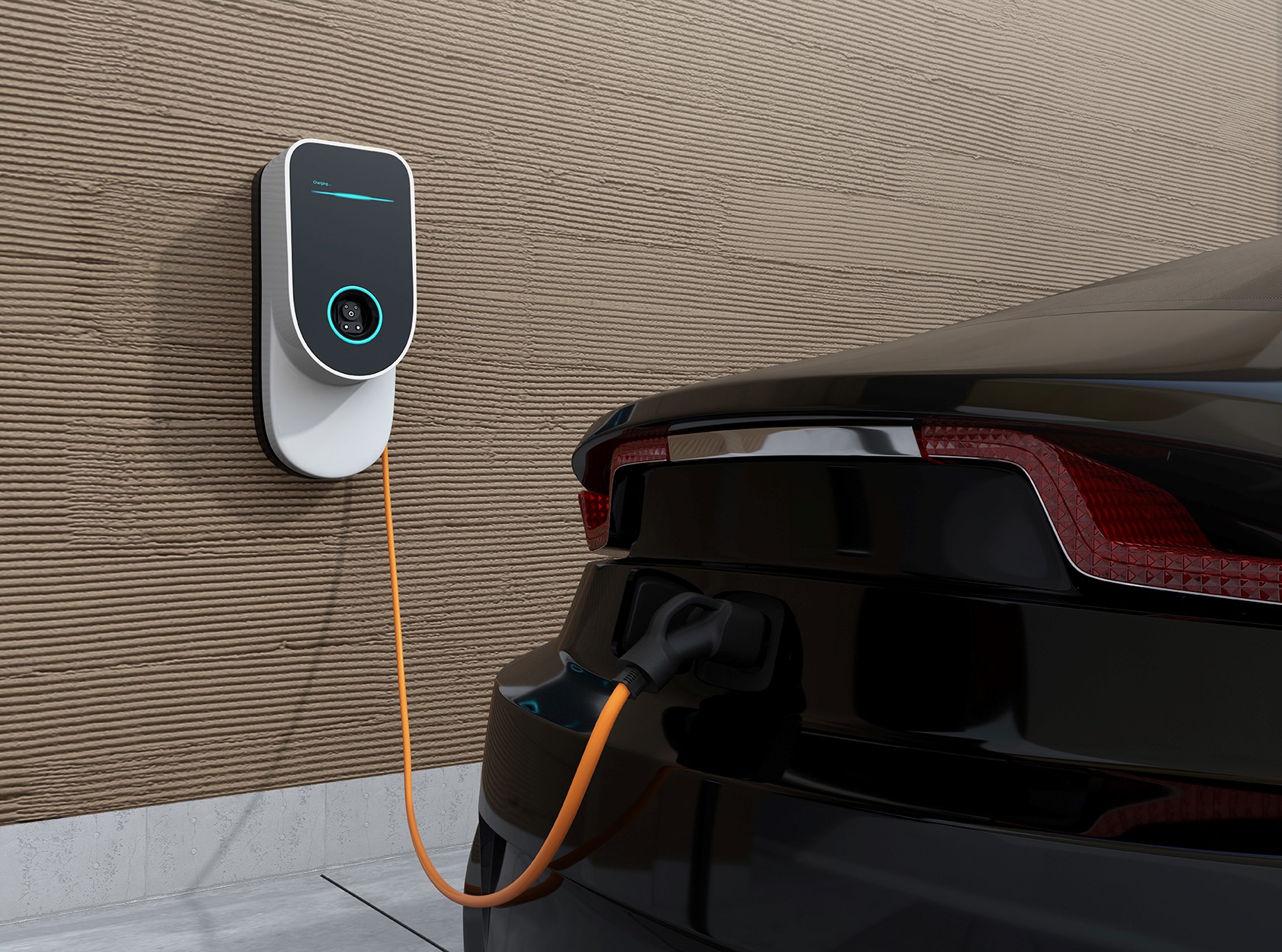
With 48 percent of sales in 2019, the Tesla Model 3 is currently the best-selling electric vehicle in the U.S.
Will your next car be an EV?
Is a new car in your 2020 plans? Have you considered buying an electric vehicle — EV, for short — this time around?
Electric vehicles are currently a tiny fraction of the car market now dominated by internal combustion engines. But with many more electric car models hitting showrooms, there’s a major transition coming in the industry, say trend watchers.
EVs are winning more fans because of their benefits. Electric motors are simpler, making them easier to maintain and meaning they should last longer. Keeping them charged is cheaper than buying gas.
Plus, they’re fun to drive, says Tom Murphy, a managing editor at Wards Auto, which ranks the world's best engines. “They're enjoyable, they're quiet … and there's loads of torque” — which means instant acceleration, he says.
Road rulers
Even with more models available, EVs have a long way to go before they rule the roads.
Nationwide, about 1.4 million plug-in vehicles have been sold. That number pales in comparison to the more than 260 million traditional (gas and diesel) fuel passenger vehicles whizzing up and down domestic highways.
Of the 9.1 million vehicles registered in Georgia, only slightly more than 23,000 are categorized as electric vehicles, said Alan Shedd, director of energy solutions for Touchstone Energy Cooperatives.
There are more than 750 EVs in Walton EMC’s service area, Shedd’s research shows. The greatest concentration of EV ownership is in suburban Gwinnett County and Oconee County — locations that coincide with the availability of more public charging locations.
Despite this lopsided advantage, Shedd and others say gasoline-powered vehicles are losing their stronghold over the automobile industry as carmakers begin eyeing the EV market more carefully. They will invest more than $90 billion in the shift to electric vehicles over the next decade or so, according to a Reuters analysis.
Ford says a third of its vehicles will be electric by 2030.
Ford says a third of its vehicles will be electric by 2030. Before the end of this year that will include the manufacturer’s iconic muscle car, reimagined as the all-electric Mustang Mach-E SUV.
Volkswagen plans to sell a million EVs annually just two years from now. At Volvo, half its offerings will be electric by 2025. By the end of this year, most major automakers will be offering at least one EV.
Last year, 46 different EV models were sold in the U.S. Every major carmaker will be marketing at least one EV model by the end of this year.
Of the current lineup, the Tesla Model 3 is the top seller by a wide margin with sales of about 159,000 vehicles (48%) in 2019, according to statistics compiled by insideEVs.com. The rest of last year’s top-five sellers in order are Toyota Prius Prime, Tesla Model X, Chevy Bolt and Tesla Model S.

Peach State plug-ins
The availability of more EV models is only half the equation. Those vehicles require fuel: electricity.
Some of the newer EV models, such as the Tesla Model 3, can go more than 300 miles before recharging. That’s more than enough power for a round-trip commute from Athens to Atlanta. Still, concerns about charging are one of the biggest barriers to EV sales.
Home charging stations are increasingly being included as a garage amenity in new construction homes throughout Walton EMC’s 10-county service area. Co-op customer-owners who have already made the switch from the gas pump to an electrical outlet have a hardwired charger installed at their home for overnight EV charge-ups.
As an incentive for making the switch to an EV,
Walton EMC offers a special rate for electric vehicle charging.
As an incentive for making the switch to an EV, the co-op offers a special rate for electric vehicle charging, which is lower than the regular electrical rate at certain hours of the day. For details contact Jeff Paul, one of Walton EMC’s residential energy advisors, at memberservices@waltonem.com.
Though not as plentiful as gas stations, public EV charging stations are getting easier to find in the Peach State. They are popping up at restaurants, public libraries and even Walgreens stores throughout the Walton EMC service area and beyond.
The number of public electric charging stations
increased dramatically in Georgia in 2019.
The number of public electric charging stations increased dramatically in Georgia in 2019, according to EV researcher PlugShare. A record 650 new stations were added, bringing the total to 2,897 statewide. Athens alone now has 42 public charging sites.
More charging stations mean more drivers can travel without fear of running out of power before reaching their destinations — a phenomenon referred to as “range anxiety.”
Take a look at PlugShare.com to find charging stations near you.
Vehicles for sale
If the price tag for a new EV exceeds your budget, there are some used car deals to be had, says Shedd. Buying a used car is a good way to see if the EV lifestyle is for you. However, keep in mind that older models have less battery range than many newer ones.
Locally, BMVW Auto Sales in Union City, southwest of downtown Atlanta, specializes in selling used plug-in vehicles. Another car shopping source is MyEV.com. This nationwide online platform includes information on EVs as well as a place to buy and sell them. On March 13, they listed 61 EVs for sale within 100 miles of Walton EMC’s headquarters in Monroe. The site partners with Carvana for delivery to your door.
Join the club
If you’re ready to go all-in on EVs, check out the Electric Vehicle Club of the South. Headquartered in metro Atlanta, the enthusiasts group is open to “EV drivers, their families and others interested in electric vehicles.” The club is a chapter of the Electric Automobile Association.